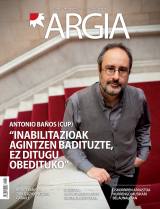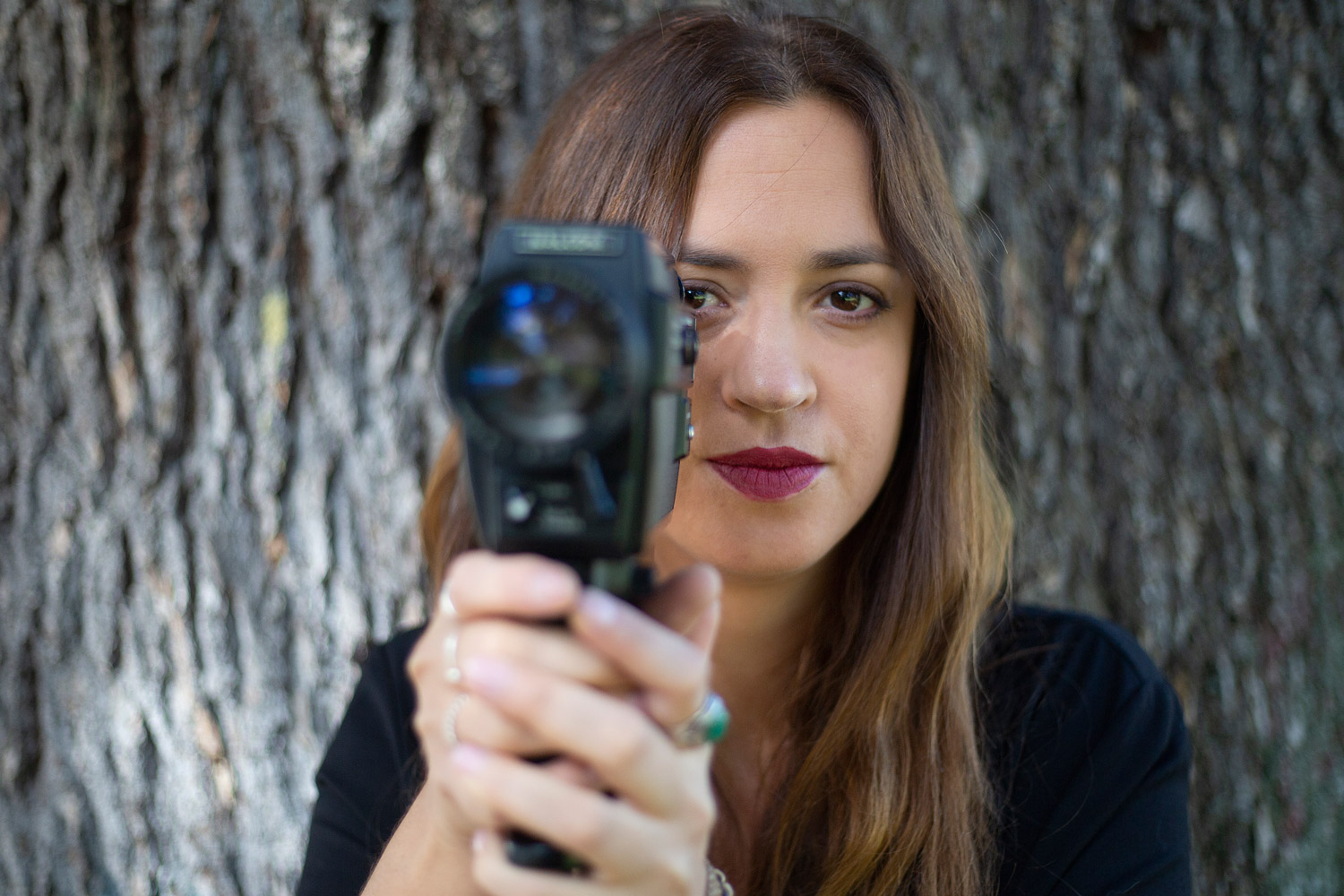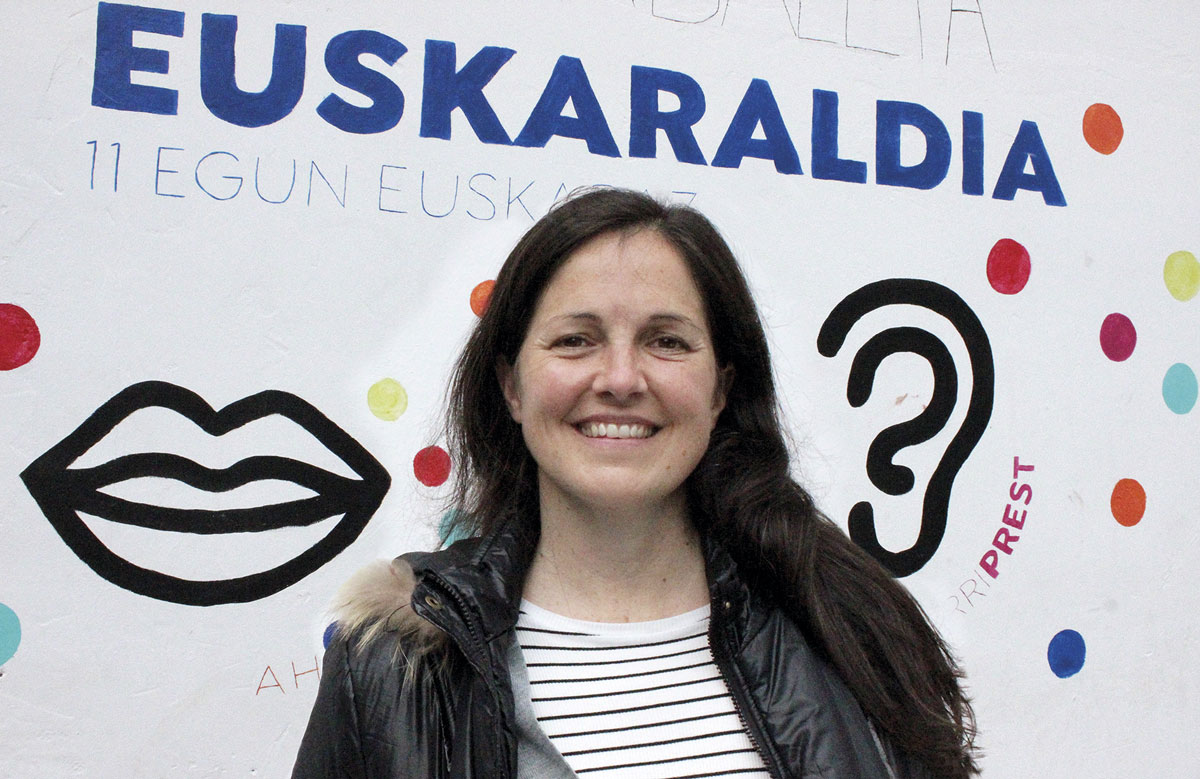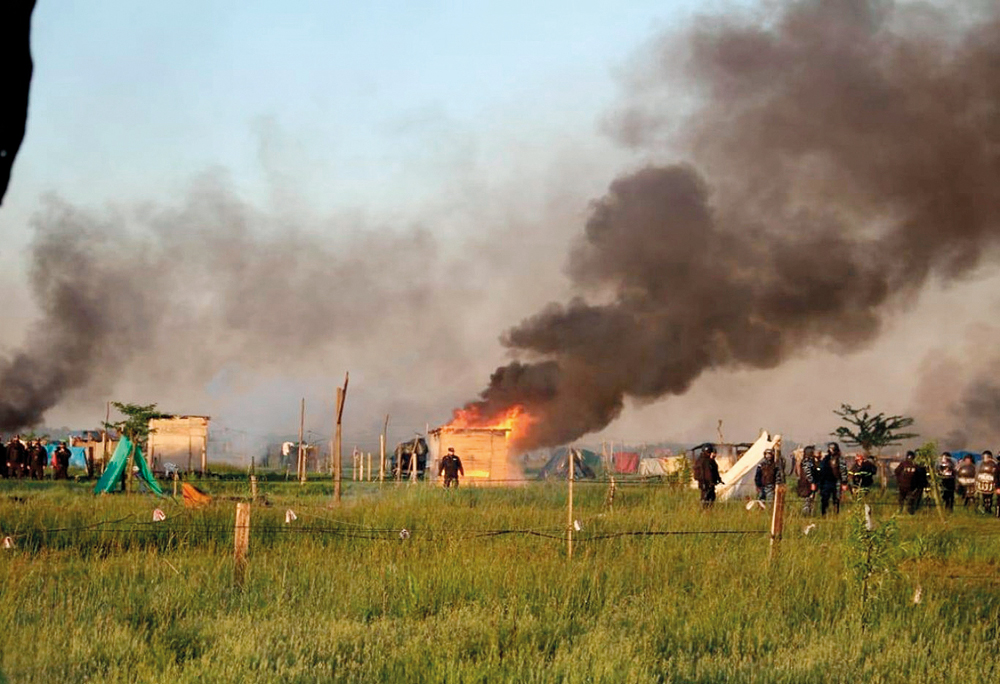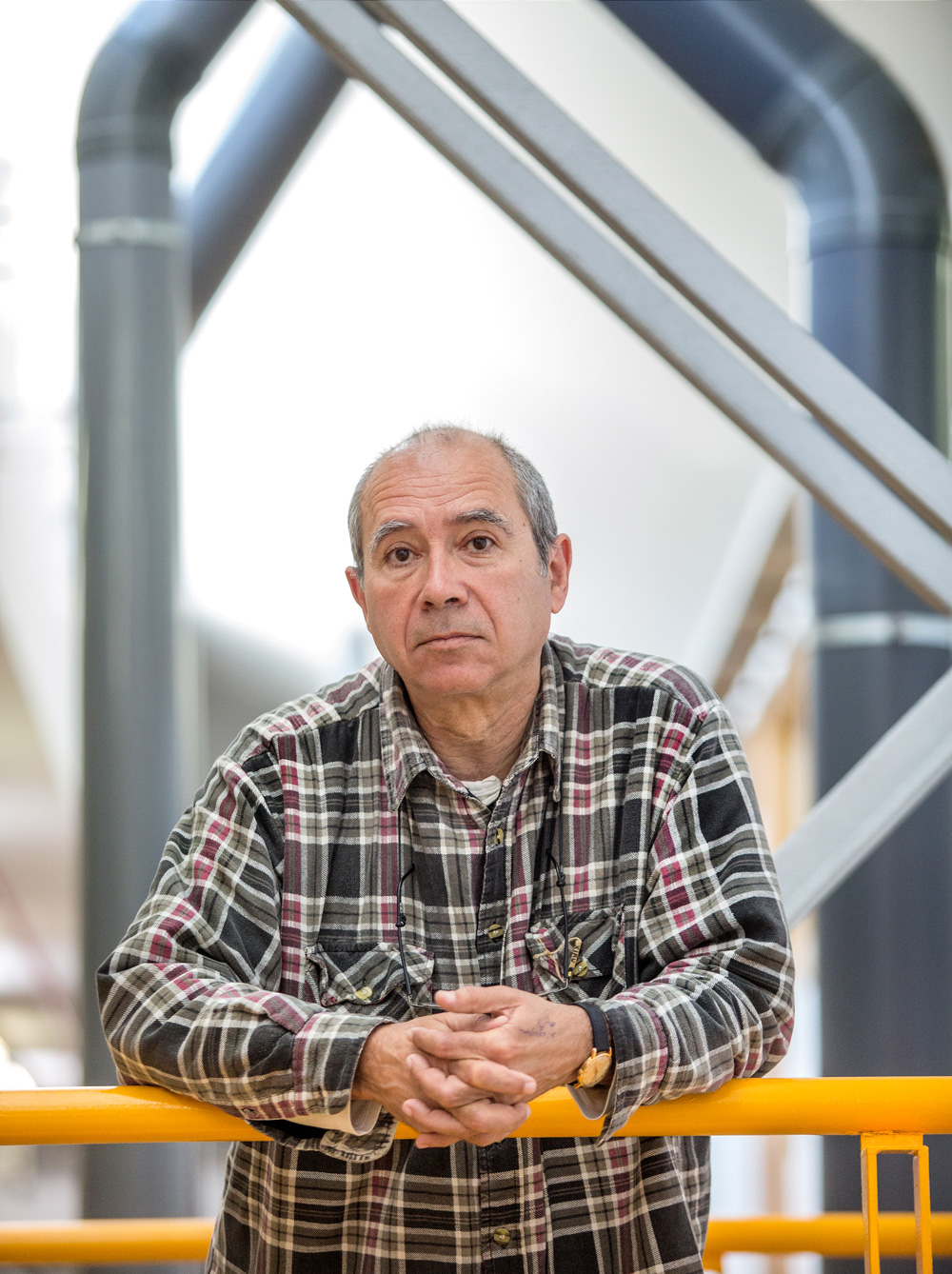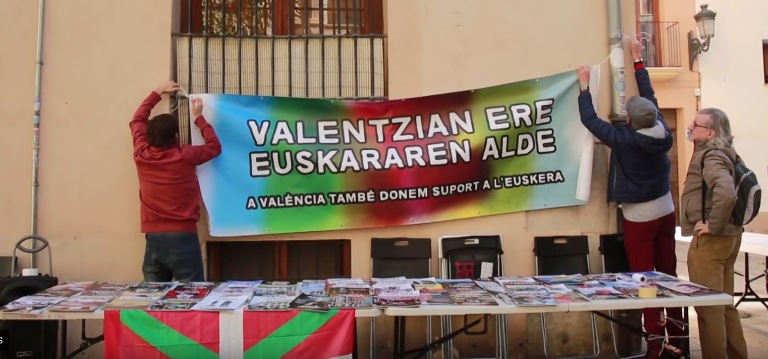"We think you have anglofided the need to globalize the vascuity"
- It would be a new version of the old song “Argentinarra naiz, Euskadi dut…”, sung by the president of the Laurak Bat Center in Buenos Aires.
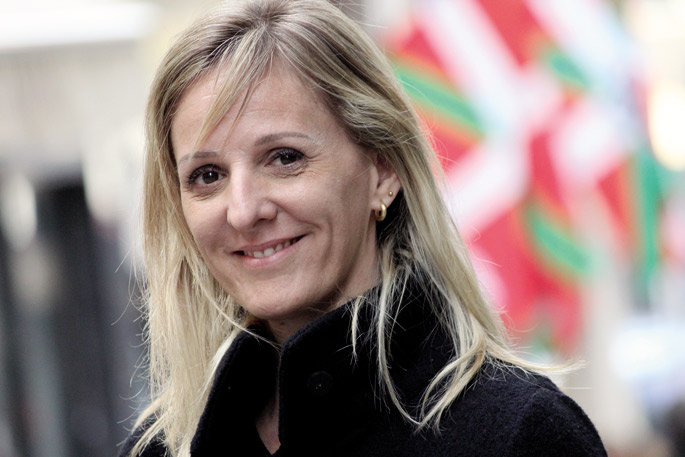
The President of Laurak Bat speaks.
I've always been Laurak Bat before being lehendakari, from a young age. It's the oldest Basque house in the world. It will be 140 years old in 2017. In Havana there is an association that opened before our [Asociación Vasco Navarra de Benefencia, 1877], but for many years it has not had activity, unlike ours. Today, it still sounds like people of the time of war and post-war in Spain in 1936. Of course, this necessarily gives the partnership great political substance. For example, we were traveling pamphlets from a young age. “Name: Arantxa”. “Description: I am Basque, I am not Spanish…”. And then ...
Here are some citizens who believe that the Basque is the mainstay of many right-wing regimes and dictatorships. You say the opposite.
There's everything, my friend, there's everything! It is very significant: the people who meet in the Basque Country etxea are very right in politics there [Argentina], but totally left in the one here, the fight for prisoners, human rights and this and that. Well, but human rights are universal, right? It misses me. Here they'd put on the hood. There they are far right. It's not easy to understand. Anyway, we are the seeds of the Laurak Bat, there we have learned to dance, to sing… there we have lived social life, there we have been family and friends – except those of the faculty – and since we were little we know those who are older than us.
Despite the upbringing of the Four in the One, you are Argentinians.
Also. The Argentinian, for example, is very passionate about making friends easily. Therefore, we have the Basque instinct – the care of relatives and relatives – and the Argentine environment, the italo-Argentinian, for example, in which it is a hustle and a scandal. I remember one time a young man came to Laurak Bat with his suitcase to study dentistry. I had nowhere to sleep, and my father said to him, “You to our house!” and the year that passed between us. And we didn't know, we didn't know where it came from, just that it was Euskaldun. Like that!
He says that in the Laurak Bat there is a strong core, formed by the war-marked generation, which has two political tendencies, one from there, the other from here. Where are you?
I do not belong to any particular political party. It hasn't made me fall in love enough yet, and I've never joined, neither there nor here. I believe in ideas, in basic things, in human rights. For example, when the lawsuit against the crimes of Franco came, I had no doubt, and like me, the Laurak Bat. Gambling involves compromise, and a lot of fear of compromise. My brother is a lawyer -- Iñaki Anitua -- a lawyer recognized in Argentina, a guarantor, and through him came the lawyers of the lawsuit. After discussing the matter in the Board of Directors, there was no debate, it was unanimously approved to push the complaint. The truth is that it surprises us that people here do not get tougher on the crimes of Franco.
You have experience in Argentina.
Yes, in the 1970s, there was a terrible atmosphere in Argentina. Some murders, other enforced disappearances. But today, there's no argument. No one is going to question or cause scandal about human rights, no one is going to make excuses for the need to draw up memory, for historical reparation, for opposition to recognition of victims. No one, I have said, although there are always reactionary sectors that deal with the military. However, today in Argentina it is unthinkable to see a monument in honor of the military. Here, on the other hand, in some places you can see the name of Franco or its trophies. And their heirs also get votes. We do not understand that.
The leaders of the dictatorship were imprisoned in Argentina, Videla and others.
Some died in jail. I have contacts with some friends of the Association of Missing Children and I am told that the trials have not stopped. For example, the mothers of May Square in the past have been laid off and their children continue to fight. These are people between the ages of 30 and 50 who are still fighting. The governments of recent times have done a great deal wrong, but they have done both good and bad. They have been firm in asserting human rights, or in matters relating to reparation, memory ... Another aspect that has been particularly careful – and that was completely abandoned in the time of the military – has been the recovery of the gestures of national exaltation: love for the flag and the rest. The Argentinian has felt these very energetic gestures, and the boys and girls of now come back to that path, very nationalist. And I think that's fine.
The Basque has lost that pride here.
Looking from there, it seems to us that the need to globalize the vasquity has led you to English-speakers. The truth is that we find it pathetic. We see Euskadi-Basque Country and it gives us a spectacular setback. I find it incredible that the Basque Country is linked to the Americans. You seem to have experienced English-speaking worship. Boise Festival and all this and that! In Argentina, we have been doing Basque weeks for 120 years. Every year, thousands of dancers and dancers meet here and there. That's the feeling. We showed it at the World Congress in October: The Argentinan Euskaraz program has been 25 years old. We have teachers born in Argentina. Other communities gathered at the congress saw this as an example. “How have you done it?” they asked us.
And how did you do it?
With passion. How to start learning Basque in Argentina in another way? Or dancing or singing? It unites us the passion, the desire and the need to be together. It's a passion. We are very Argentinians, the bipolar ones. Now we are a splendid sky, now we are a hindrance! Our community is very passionate, we do all things with a lot of passion. That's why so many psychoanalysis in Argentina. Jajajajajajajajajajajajajajajajajajajajajajajajajajajajajajajajajajajajajajajajajajajajajajajajajajajajajajajajajajajajajajajajajajajajajajajajajajajajajajajajajajajajajajajajajajajajajajajajajajajajajajajajajajajajajajajajajajajajajajajajajajajajajajajajajajajajajajajajajajajajajajajajajajajajajajajajajajajajajajajajajajajajajajajajajajajajajajajajajajajajajajajajajajajajajajajajajajajajajajajajajajajajajajajajajajajajajajajajajajajajajajajajajajajajajajajajajajajajajajajajajajajajajajajajajajajajajajajajajajajajajajajajajajajajajajajajajajajajajajajajajajajajajajajajajajajajajajajajajajaj I work to maintain balance!
You are president of Laurak Bat and vice-president of FEVA.
It's a great responsibility and a pride, too. I am also a lawyer and I know when I make Arantxa’s name and when I make the name of Laurak Bat’s President or FEVA’s Vice President. I agree with the statutes of Laurak Bat, as he emphasises nationalism. I've been in the forefront of Laurak Bat for five years, 40 in the history of society, and the first woman in the upper grade. I have regarded it as a recognition of women, because women have been fundamental in the trajectory of Laurak Bat: they have taught Euskera, they have released dances, customs and laws, they have told us the history of exile and uproar, always full of hope, and that has made us a united, strong, wise and living diaspora. We have not forgotten the history of war.
What do you think about the world congress of the diaspora that has not been held in Vitoria? It's been quieter than ever, more closed than ever. Perhaps the crisis would also affect.
Here, when you start talking about the crisis, we laughed in Argentina. Crisis? You have no idea what the crisis is! It seems that the atmosphere has calmed down, but we cannot talk about crises. The crisis is in Syria or in Haiti. You cannot talk about crises here. On the occasion of the congress, most of it was used in the private sphere, in times of breakfasts, excursions, here and there. We South Americans are very open to language and so we did the exchange of information through human relations: "How are you?" What works for you? How have you invented it in one and the other?” What we have not been able to do in the congress itself, we have done through the roads. That's how the California boy came to us. “How did you adapt in Argentina to carry out the program in Basque?”
Network of human relations.
There is no more. Look, in May we did a festival: “Buenos Aires celebrates Euskal Herria.” The city's City Hall dedicates one day each year to a community. This year they came to ask us whether we thought it was OK. That we put our conditions – not Spanish ambassador, not Spanish flag, this, this and that no, no, no, no… – and that under those conditions we would be happy to participate. If not, to forget it. On the other hand, we told them that the reason for the holiday seemed perfectly appropriate. It's usually a whole day. They cut off May Avenue, we filled 200, 300 meters of txosnas and scenes, it was full of media – although the media is always ruined by spreading Basque news, because they know that they always have the embassy of Spain watching – in short, a round party. Not in vain. On the eve of the party, everyone worked for dinner and phone call. From the other side of the thread: “They have called from the Spanish embassy!” “Yes, what?” I say. “We told them that the conditions of the party are agreed between us.” “Then, go ahead,” I replied. It was Hernani's festivities, but on Avenida de Mayo. All filled with ikurrina, with the micro open, what we wanted and more said. Of course, 14,000 kilometers from here is easier. There is no one against you there.
Don't envy you the Boise Festival.
None of that! Our party is full of content. There came a time from the party where I felt completely tired, but the moment I had seen all of our collectivity and was full of strength: in an outcry for the prisoners, in an outcry for the prisoners, in the other the father of Maxima Zorregieta, queen of the Netherlands, in which all the most reactionary, the president of the Juan de Garay Association, I said: “I want the photo of this moment.” Yes, because we all live together, in favor of the prisoners and the queen's father, and in the middle, thousands of dancers in swords. “This is the diaspora.” It's touching, it's like filling your soul. Our happy people, the media asking about this and that. We know who we are, what we are, where we come from… From here to back, it is up to us to open ourselves to the four winds. That's our goal now at the Laurak Bat, to show what we do next. Two or three departures a year. The consequences are really beneficial.
The news of Boise has come to us, barely from Buenos Aires.
We've talked a lot about it among ourselves, every time we do group therapy. We have 140 years of history, at one time the government was kept here, even in money. There is no reason to enrage anyone, but to recover the historical memory. I've been listening to my uncles here the stories of war and postwar. We would consider them a great procés in Argentina. Here, on the other hand, there seems to be a wrath to forget about things. It's symptomatic: here's a craving to keep dirt under the carpet and move forward.
Will it be possible?
Yes, yes, and I saw it with the querella. The lawyers of the lawsuit arrived. Among them, Dr. Zamorano, an elderly man, committed to life. He who played the skin at the time of our dictatorship. He went into jail looking for people. What a beautiful man! He came in and said to me, “I’m indebted, we started a lawsuit, but I think we haven’t made much progress as far as the Basques are concerned.” "And you, in debt?" You are the only one in the world that has moved the issue! The complaint is underway, that's what they're talking about everywhere. Spain may not have to extradite, but at least those people will feel uncomfortable. It's not a little bit." The complaint has been launched in Argentina, not here. What about people here, why hasn't it been released before?
1971, Buenos Aires
Aitaren aldetik Hernanikoa zuen amona, herritik Argentinara joana iragan mendeko 20ko hamarkadaren hasieran, 19 urte zituela; han zituen ordurako ahizpak. Arteagakoa zuen aitona, lehenago emigratua. Laurak Baten ezagutu zuten batak bestea, dantzaldi bat medio. Amaren adarrean, birraitona-amonak Iparraldekoak zituen. Aitona zeharo argentinar nazionalista izan zen. Emaztea ingelesa hartu zuelarik, etxean ingelesik aditu zedin galarazi zuen. Gurasoei dagokienean, aita dantzari izan zuen Laurak Baten, eta zuzendaritza batzordeko kide hainbat urtez. “Apasionatu hutsa da aita. Haren bidetik jaso ditugu lan, esfortzu eta elkartasun balioak. Ama ingelesa dugu, euskal-ingelesa honezkero. Hark ere lagundu zuen”.
Arantxa Anitua abokatu da lanbidez, eta Laurak Bat, FEVA, frankismoaren krimenen kontrako kereila, Onda Vascako Gabon irratsaioa, Argentinako kolektibitateen emakumeen foroa eta familia ditu pizgarri, besteak beste.
“Armeniarrak, juduak, italiarrak –hau da, Argentinako kolektibitate inportanteetakoak–, galdezka etorri izan zaizkigu: ‘Nola egiten duzue, ordea, hainbeste gazte mugiarazteko?’. Euskal festan, ehunka mutil gazte ezpatadantzan, 30 urtez azpikoak. Oso errekonozitua dago gure kolektibitatea han, eta hainbeste gazte konprometituta ikustea zaie harrigarrien”.
“Hango adinekoentzat, lehendakariaren figurak lortu zen zerbait irudikatzen du. Gaur egun Jaurlaritza dago, hegan ageri da ikurrina… Jakina, ondoan besterik ez duela nahiko genuke, harrigarri zaigu bandera espainola ikurrinaren ondoan ikustea. ‘Lasai! Hango kontuak dira!’, esan behar izaten diegu adineko horiei. Lehendakaria ukitzea, berriz, Jesukristo ukitzea iruditzen zaie. Ikaragarri zaie lehendakariak ordezkatzen duena”.
“Errepublikan eman zuen azken meza gurean eman zuen Bergogliok [Frantzisko aita santua], San Ignazio jaiaren barruan. Haren eskuin eskua Laurak Baten hazi zen, Sukunza monsinorea. Honen aita alargundu zenean, Laurak Batek garbitzaile lana eman zion eta bertara ekarri zituen seme-alabak. Haren seme Sukunza monsinorea tarteko, Bergoglio Laurak Baten izaten genuen beti San Ignazio meza esaten. Argazkietan ikurrina eta guzti ageri da”.
Euskal jatorriko 37 gazte estatubatuar Euskal Herria ezagutzen eta euskara ikasten aritu dira uda hastapenean.
San Frantziskoko Euskal Etxeak 40 urte bete ditu asteburu huntan.
I have received an email from Brazil. These are words of beasaindarra Estebe Ormazabal Insausti, a subscriber of ARGIA. It's not the first person living abroad that we've brought to this corner. Little by little we are collecting the opinions, reflections, criticism and praise of... [+]
San Vicente barrutia (Argentina), 1934ko maiatzaren 18a. Mathilde Díaz Vélez lurjabeak Buenos Airesetik 40 kilometro ingurura zeuden bere lursailetan Guernica izeneko herria fundatzeko eskaera helarazi zion Buenos Aires probintziako Obra Publikoetako ministroari,... [+]









